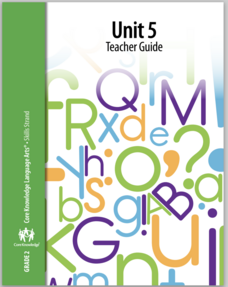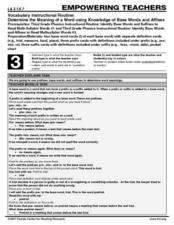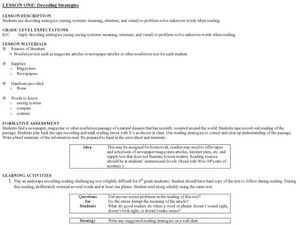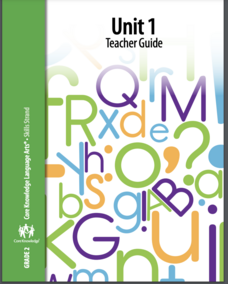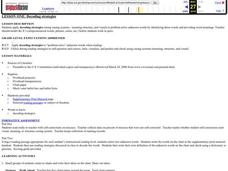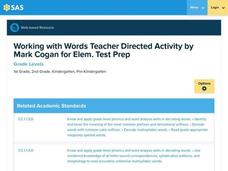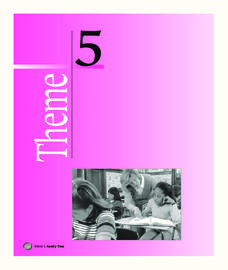Florida Center for Reading Research
Fluency: Words, Quick Sort
Peers work together to boost fluency by timing each other as they read and sort multisyllabic words. Record sheets keep track of participants' progress.
Meadows Center for Preventing Educational Risk, University of Texas at Austin
Lesson 13 - Multisyllabic Word Reading
One- and two-syllable words may flow from the tongue with ease, but longer words, such as department and volcano, feel like tongue twisters. Scaffolded instruction explains how to break words into their individual syllables, and then...
Curated OER
Identify Base Words and Suffixes to Read Multisyllabic Words #1
Show your scholars how adding an affix changes the entire meaning of a word; they focus on the suffix -able. You'll find a complete script here, but if you don't want to read this verbatim, use it simply as an outline. Learners watch you...
Curated OER
Word Origins
Understanding a word's etymology can really help with decoding and building vocabulary skills. Readers compare and contrast words of similar origins but with different difficulty levels. They focus on prefixes, suffixes, and affixes....
Meadows Center for Preventing Educational Risk, University of Texas at Austin
Lesson 10 - Compound Words
Individually, words have power, but when added together, they can take on a whole other level of meaning. Readers learn about compound words in the 10th of 17 lessons of the Word Recognition and Fluency series. A script provides guidance...
Curated OER
Vocabulary through Text
Explore word meanings. Sixth graders identify examples of words with affixes while listening to the story Paul Bunyan by Steven Kellogg. They participate in the game "Pass the Parts" and practice separating given words into their root...
Curated OER
Applying Decoding, Vocabulary, and During Reading Strategies
Apply reading strategies to boost phonemic awareness. While reading a provided informational text, learners use decoding, vocabulary, and a graphic organizer to strengthen their overall reading ability. Handouts and the reading passage...
Core Knowledge Foundation
Second Grade Skills Unit 5: Sir Gus
A unit focuses on second-grade skills, specifically spelling, grammar, writing, and reading. Over six weeks, scholars review spelling patterns and tricky words, and explore verb tenses, adjectives, subjects, and predicates. They write...
Curated OER
Determine the Meaning of a Word Using Knowledge of Base Words and Affixes
Affixes can change the entire meaning of a word! Pupils practice with three prefixes and three suffixes in this scaffolded word meaning resource. There are affix cards here you can display in a pocket chart as you review. Learners first...
Cleveland Metro School District
Novel Lesson for The Giver
Lois Lowry's The Giver is one of the most engaging and thought-provoking works of literature in the middle school curriculum. Round out your novel unit with a collection of reading activities, comprehension questions, memoir and journal...
Curated OER
Lesson One: Decoding Strategies
Review decoding strategies to read a chosen text. Readers tape themselves reading out loud, listen to the recording, and mark where they have misread words or phrases. They then discuss which words were misread and review how to correct...
Core Knowledge Foundation
Second Grade Skills Unit 4: The Job Hunt
Second graders practice skills, including spelling, grammar, and reading. Pupils examine vowel sounds and tricky words, nouns, and verbs. They begin the writing process by drafting a persuasive letter and decoding texts.
Core Knowledge Foundation
Second Grade Skills Unit 1: The Cat Bandit
For twenty-two lessons over five weeks, scholars practice sound-spelling correspondence, spelling patterns, tricky words, and reading decodable text. Assessments aid in small group formation and gauge comprehension. Lessons begin with a...
National Institute for Literacy
Making Sense of Decoding and Spelling
Go over digraphs, vowel sounds, and affixes with a series of decoding and spelling lessons. Each lesson guides learners through a different reading and phonics skill, building on the lesson before, and challenging them with each step.
Curated OER
Decoding Strategies
Young readers apply decoding strategies to identify unknown words. In this reading instructional activity, they read the Preamble and practice using decoding strategies. Small groups rotate to five charts that have questions regarding...
Core Knowledge Foundation
First Grade Skills Unit 4
Twenty-eight lessons make a unit that focuses on skills practice. Lessons explore r-controlled vowels, past tense verbs, nouns, adjectives, and two-syllable words. Pupils read a story, answer questions, and draft a descriptive essay...
Florida Center for Reading Research
Advanced Phonics: Morpheme Structures, Compound Construction
A phonics lesson focuses on morpheme structures—compound words. Pairs choose letter cards, identify a compound word that starts with that letter and write it on a whiteboard. Extension opportunities include additional practice pages.
Houghton Mifflin Harcourt
Around Town: Neighborhood and Community: Extra Support Lessons (Theme 3)
Neighborhood and community is the theme of a unit comprised of extra support lessons. Following practice pages and a teach, blend, guided practice, practice/apply routine, the series of lessons provide additional reinforcement of reading...
Houghton Mifflin Harcourt
Nature Walk: English Language Development Lessons (Theme 2)
Walking in nature is the theme of a unit designed to support English language development lessons. Scholars look, write, speak, and move to explore topics such as camping, woodland animals, instruments, bodies of water, things found at a...
Houghton Mifflin Harcourt
Family Time: Extra Support Lessons (Theme 5)
Provide extra support with a unit that follows a teach, blend, guided practice, and practice/apply routine to reinforce reading, grammar, vocabulary, and writing skills. Reading and writing lessons include supporting details, story...
Pennsylvania Department of Education
Working with Words Teacher Directed Activity by Mark Cogan for Elem. Test Prep
Pupils build word families. In this interactive language arts activity, students visit a website where they play a game creating word families. Pupils may print out their work when finished.
Book Units Teacher
Skill Lessons – Prefixes and Suffixes
Sometimes the best way to understand a concept is to break it down. Young vocabulary pupils work with word parts in a hands-on activity that prompts them to connect flash cards with affixes to their root and base words. Additionally,...
Reed Novel Studies
The Hobbit: Novel Study
All it takes is a little adventure to interrupt a quiet, simple life. A study guide for The Hobbit explores the adventures that disrupt Bilbo Baggins' quiet life. Questions discuss key events found within J.R.R. Tolkien's novel and...
Houghton Mifflin Harcourt
Family Time: English Language Development Lessons (Theme 5)
Support English language development with a family-themed unit consisting of a series of lessons designed to get your scholars moving, looking, speaking, writing, and listening. Conversation topics include birthdays, family...









